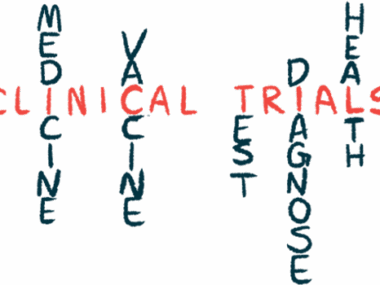More efzofitimod exposure linked to better lung function in trial
1st-in-class aTyr treatment shows promise in pulmonary sarcoidosis
Written by |

Greater exposure to the experimental treatment efzofitimod led to a more pronounced improvement in lung function for people with pulmonary sarcoidosis in a Phase 1/2 clinical trial, according to a new analysis.
Scientists at aTyr Pharma, the company developing the first-in-class immunomodulatory therapy, presented their findings at last month’s American Thoracic Society (ATS) 2023 International Conference, in a poster titled “Exposure-Efficacy Analysis Supports Proof of Concept for Efzofitimod in Pulmonary Sarcoidosis.”
“Our presence at this year’s ATS is an important opportunity for aTyr to feature the research we have generated that further support efzofitimod as a next generation immunomodulator with the potential to be a transformative, disease modifying therapy,” Sanjay Shukla, MD, president and CEO of aTyr, said in a company press release.
The randomized, placeb0-controlled study (NCT03824392), completed in 2021, had tested various doses of efzofitimod in 37 people with pulmonary sarcoidosis — that is, sarcoidosis affecting the lungs. The initial results from the trial suggested that efzofitimod treatment eased symptoms, improved lung function, and reduced the need for oral corticosteroids among patients.
Now, researchers used findings from that study, combined with pharmacological data collected in a prior Phase 1 trial involving healthy volunteers, to conduct an exposure-efficacy (EE) analysis. In simplest terms, this type of analysis tests whether different levels of a medication in a patient’s system — referred to as a person’s exposure to the drug — are tied to a therapeutic effect that is any more or less pronounced.
The results suggested a positive EE response: Patients with higher exposure to efzofitimod generally experienced greater improvements in lung function score and a greater reduction in steroid use.
The analyses also suggested that patients given higher doses of the experimental medication more often experienced clinically meaningful improvements in lung function scores.
“These preliminary findings of a positive EE response across multiple clinically relevant endpoints support the claim that efzofitimod displays efficacy in pulmonary sarcoidosis,” the researchers concluded.
aTyr is now running a Phase 3 trial called EFZO-FIT (NCT05415137) that aims to test two doses of efzofitimod — 3 or 5 mg/kg — against a placebo in 264 adults with pulmonary sarcoidosis. The trial is enrolling participants at sites across the U.S., and in Europe and Japan. It’s slated for completion in January 2025.
Sarcoidosis is characterized by the formation of inflammatory clumps of immune cells called granulomas in the body’s tissues. Efzofitimod, formerly called ATYR1923, is designed to reduce inflammation by modulating the activity of an immune cell protein called NRP2.
These preliminary findings of a positive [exposure-efficacy] response across multiple clinically relevant endpoints support the claim that efzofitimod displays efficacy in pulmonary sarcoidosis.
In a separate poster at the ATS conference, titled “Efzofitimod, a Novel Immunomodulator for Pulmonary Sarcoidosis, Modulates Patient Inflammatory Responses Through Myeloid Cells,” scientists at aTyr presented new preclinical data shedding further light on the biological mechanism of efzofitimod.
The scientists analyzed a type of immune cell called monocytes collected from people with or without sarcoidosis. Their results showed that cells from sarcoidosis patients expressed markedly higher levels of the NRP2 protein, as well as several pro-inflammatory signaling proteins, compared with those from individuals without the disorder.
Treating the cells with efzofitimod led to a reduction in levels of these pro-inflammatory markers, accompanied by other changes in the cells, that overall suggested a less inflammatory state.
“We present new data showing that by binding to neuropilin-2, efzofitimod modulates immune responses through myeloid cells,” Shukla said.
“By targeting multiple drivers of inflammation, efzofitimod provides a differentiated approach to resolving chronic inflammation. This major advancement in our mechanistic understanding of efzofitimod, in addition to new data that demonstrate a positive exposure-response for efzofitimod on multiple clinically relevant endpoints from a Phase 1b/2a study in pulmonary sarcoidosis patients, provide further evidence of clinical proof-of-concept,” Shukla said.
According to aTyr, the culled data show efzofitimod’s promise as “an emerging treatment for sarcoidosis,” with the potential to “resolve inflammation and prevent the progression of fibrosis [scarring] in patients with pulmonary sarcoidosis.”






